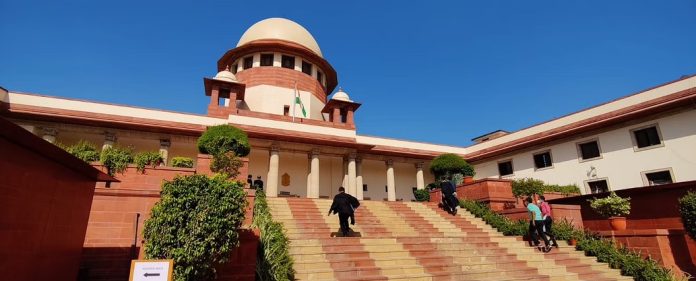- Trust me, Indian citizens will always look up to the Supreme Court as a last resort for seeking relief, respite, and reassurance on matters of grave concern. The Constitutional body has developed a robust mechanism over the years to ensure the common citizens’ concerns are addressed within the purview of the law of the land. To its credit, the Apex Court has not only lived up to its expectations but is also positioned as a neutral body assiduously protecting the tenets of the Constitution in letter and spirit. Of course, the SC is also saddled with perfunctory innuendos for acting in an overzealous manner too. We all have heard enough about judicial overreach and activism dotting the news headlines regularly. Indeed, there is some truth to it.

PC: Souvik Roychoudhury
- However, the SC must be credited for stepping in whenever certain matters of national importance demand intervention when the legislature and the executive fail to act. The watchdog performs those responsibilities with great aplomb pushing the other arms to be on their toes. Just the other day, the Supreme Court wrote out an order that can move the needle in reforming India’s power distribution sector. The order asked state electricity regulators, SERCs, to frame regulations that detail terms and conditions to determine electricity tariffs. Rightly, SERCs have been given a three-month deadline. We know how the state electricity boards are under the red owing to a variety of reasons, including the freebie culture cultivated by the political class.
- To put this matter in perspective, SERCs are not being asked to do something new. They are merely being asked to put into effect an important principle prescribed in India’s 19-year-old overarching legislation to reform the power sector. The apex court judgment’s salience arises from identifying an important impediment to power reforms – the unsatisfactory performance of SERCs. The electricity legislation and subsequent national electricity and tariff policies all account for political realities. State governments are allowed to subsidise consumers provided that they do it out of their budget. It’s the only provision of free electricity that is rightly discouraged. The crucial element in the system is an independent state electricity regulator who fixes tariffs and ensures the smooth functioning of the power ecosystem.

PC: Financial Tribune
- Unfortunately, if SC has to remind them 19 years later to frame tariff regulations, an essential condition to ensure the financial viability of the system, it’s a reflection of their performance. A worrisome aspect of the current ad hoc approach to tariffs is the creation of regulatory assets, costs that a SERC recognizes but whose collection it allows to be postponed. A build-up of regulatory assets eventually triggers tariff shocks through sharp one-time increases to compensate for years of postponement. Thus, the only way to deal with these problems is for SERCs to frame rational tariff regulations that account for changing input costs. The other benefit of tariff rules will be curbing monopolist-like pricing, especially in areas with one distributor.






